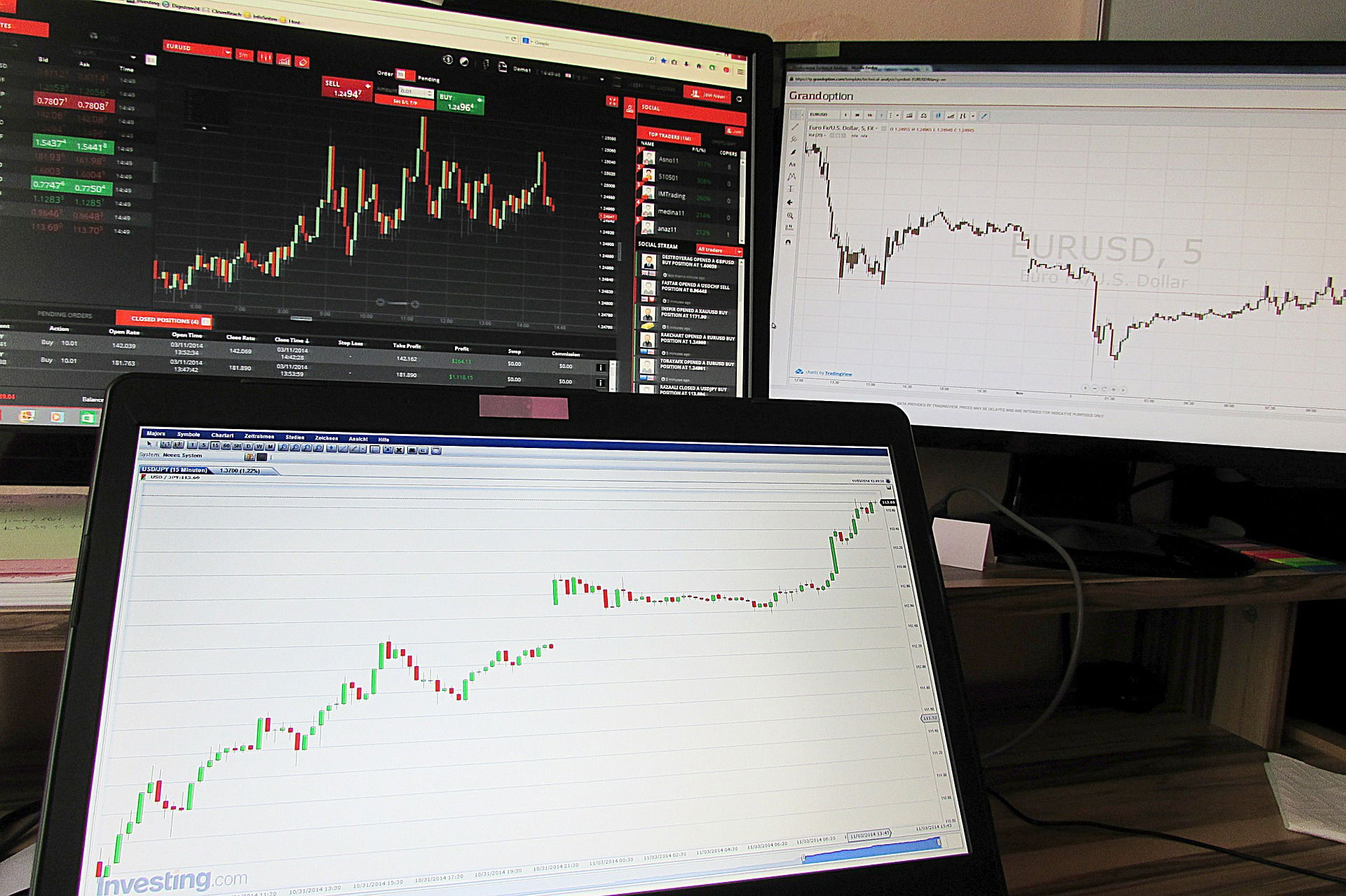Online Trading and Investments

The internet has revolutionised the financial world, opening up opportunities for individuals to engage in online trading and investments. From the stock market to cryptocurrencies and forex or binary options trading, online platforms provide a gateway for people to invest in various financial assets and potentially generate significant returns.
Engaging in online trading and investments can also lead to financial gains. Trading stocks, cryptocurrencies, or forex allows you to speculate on price movements and potentially profit from market fluctuations. While this method requires knowledge, research, and risk management, successful traders can earn significant returns on their investments.
Stock trading has become more accessible than ever, with online brokerage platforms offering user-friendly interfaces and a wide range of investment options. Investors can buy and sell shares of companies, trade exchange-traded funds (ETFs), and diversify their portfolios with ease.
Cryptocurrencies have emerged as a highly popular investment asset class. Online cryptocurrency exchanges enable users to buy, sell, and trade digital currencies like Bitcoin, Ethereum, and many others. While cryptocurrencies offer the potential for substantial gains, they also carry higher volatility and risk compared to traditional investments.
Forex (foreign exchange) trading involves the buying and selling of currencies in the global marketplace. Online forex brokers provide traders with leverage, allowing them to control larger positions with a smaller initial investment. However, the forex market operates 24/5 and requires a deep understanding of market dynamics and risk management strategies.
While online trading and investments can be lucrative, they also carry inherent risks. It's essential for aspiring traders and investors to educate themselves, understand their risk tolerance, and develop a well-thought-out strategy. Practicing with demo accounts and seeking advice from financial professionals can be beneficial for those starting their journey into the world of online trading and investments.

What exactly is Forex and how does it work?
Forex, short for foreign exchange, is the largest and most liquid financial market in the world. It involves the buying and selling of currencies, where traders aim to profit from the fluctuations in exchange rates. Unlike traditional stock markets, which have centralised exchanges, forex is a decentralised market where trading takes place electronically over-the-counter (OTC). Major participants include banks, financial institutions, corporations, governments, and individual retail traders.
Forex trading operates 24 hours a day, five days a week, due to the presence of multiple financial centres across different time zones. The most actively traded currencies are known as major currency pairs, such as EUR/USD (Euro/US Dollar), GBP/USD (British Pound/US Dollar), and USD/JPY (US Dollar/Japanese Yen). Traders use forex brokers to access the market, and these brokers provide trading platforms that offer tools and charts for analysing price movements. The concept of going long (buying) or going short (selling) a currency pair allows traders to profit from both rising and falling markets. Leverage is commonly used in forex trading, allowing traders to control larger positions with a smaller amount of capital, but it also increases the risk.
How to Earn Money with Forex?
Earning money with forex requires a combination of skill, knowledge, and discipline. Successful traders employ various strategies, including technical analysis, fundamental analysis, and risk management techniques. Technical analysis involves studying historical price charts and patterns to predict future price movements, while fundamental analysis focuses on economic indicators and geopolitical events that may impact currency values. Risk management is crucial in forex trading to protect capital from significant losses. Traders often set stop-loss and take-profit orders to automatically close positions at specified price levels. Additionally, diversification, position sizing, and avoiding excessive leverage are essential for managing risk effectively.
Obstacles with Trading Forex
While forex trading can be lucrative, it also comes with several challenges and obstacles that traders need to overcome:
Volatility and Risk: Forex prices can be highly volatile, driven by various factors such as economic data releases, geopolitical events, and market sentiment. Traders must be prepared to manage risk and avoid making impulsive decisions during turbulent market conditions.
Emotional Discipline: Emotions, such as fear and greed, can significantly impact trading decisions. Successful traders learn to control emotions and stick to their trading plans, even in challenging situations.
Complexity: Forex trading involves complex financial instruments and concepts. New traders may find it overwhelming initially and should invest time in learning the fundamentals and gaining experience through demo trading.
Scams and Unreliable Brokers: The decentralized nature of the forex market also attracts fraudulent schemes and unreliable brokers. Traders need to exercise caution and choose reputable brokers regulated by recognised financial authorities.
In conclusion, forex trading offers exciting opportunities for individuals to participate in the global financial market and potentially earn profits. However, it requires dedication, continuous learning, and a disciplined approach to overcome the challenges and obstacles inherent in trading forex.
What are Binary Options?
Binary options are a financial derivative that provides traders with a simple way to speculate on the price movements of various assets, such as stocks, commodities, currencies, and indices. Unlike traditional trading methods, binary options offer a fixed payout if the trader's prediction about the asset's price direction is correct. The term "binary" comes from the fact that there are only two possible outcomes: either the trade is successful, and the trader receives a predetermined payout, or the trade is unsuccessful, and the trader loses the initial investment.
How Does Binary Options Trading Work?
Binary options trading involves selecting an underlying asset and predicting its price movement within a specified timeframe, which can range from minutes to hours or days. Traders choose between two options: "Call" if they anticipate the price will rise, or "Put" if they believe it will fall. If the trader's prediction is correct at the expiration time, they receive a fixed payout, typically between 70% to 90% of the initial investment. However, if their prediction is incorrect, they lose the entire investment. Binary options trading platforms provide traders with user-friendly interfaces, making it accessible to both experienced and novice traders. The simplicity and predefined risk-reward ratio of binary options have made it an attractive choice for those seeking quick profits.
How to Earn Money with Binary Options?
To earn money with binary options, traders need to develop a winning strategy and exercise risk management. Successful traders use technical and fundamental analysis to identify potential entry and exit points. Technical analysis involves studying price charts, trends, and patterns, while fundamental analysis focuses on economic indicators and news events that may influence asset prices. Risk management is critical in binary options trading due to the fixed payout structure and potential for losing the entire investment. Traders often limit the amount they invest per trade and avoid risking a significant portion of their capital on a single trade. Setting stop-loss and take-profit levels can also help manage risk and protect profits.
Obstacles with Trading Binary Options
While binary options offer a straightforward trading approach, there are several obstacles that traders should be aware of:
High Risk: Binary options have a high level of risk due to the fixed payout structure. Even if a trade is just slightly in the wrong direction, the trader loses the entire investment.
Limited Regulation: The binary options industry has faced issues with fraud and unregulated brokers. Traders must be cautious and choose brokers that are properly regulated by reputable financial authorities.
Overtrading: The simplicity of binary options can lead to overtrading, where traders take on excessive positions without proper analysis, leading to potential losses.
Market Volatility: Sudden market movements and price fluctuations can make it challenging to accurately predict asset prices within the short timeframe of binary options.
In conclusion, binary options trading offers a straightforward way to speculate on asset price movements, but it comes with significant risks. Traders need to approach binary options with caution, develop a robust trading strategy, and practice prudent risk management to navigate the obstacles and potentially profit from this financial derivative.